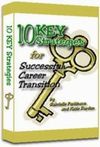Getting a job is really pretty simple. The one who's hired is usually the applicant who convinces the prospective employer that s/he can provide what the employer wants.
That's why it isn't always the person with the most or best experience, background, or references who gets the job. There are always other factors that enter into every hiring decision, too, including personality, salary issues, availability, budgets, etc. Notice, however, I said the successful candidate "convinces" the employer. The hiring manager needs to believe that YOU are the best candidate. And that's key to understanding how to approach any interview.
So what's the secret to being able to "convince" the interviewer? Certainly negotiation skills are useful, but first you have to get to an opening for the negotiation. So, the first step is being prepared – and that means understanding what the employer needs and also what s/he thinks s/he needs.
Research. . . Research. . . Research
The first step will always be to research the company and the industry. Most companies have some kind of literature they send to prospective customers, or a customer service section of their business. Starting there, you can find out about other publicly available documents (annual reports, etc.). You’ll also begin to get an idea of the "corporate culture" through your interaction with existing staff.
It's perfectly acceptable to call and talk with people who work for the company, just be respectful of their time and let them know why you're calling. In fact, one of the first things you should do when you're interested in a particular company or industry is to set up one or more "informational interviews" with key members of the company to find out more. Ideally this should happen long before they have an advertised opening.
By being proactive you'll be prepared when the opportunity arises. You’ll have already established a contact inside the company and you’ll know some things other applicants probably won’t know. Informational interviews allow you to gather an incredible amount of information in a non-threatening environment since they are usually conducted as research, and have nothing to do with prospective employment.
Let's say, however, you never got around to the informational interviews. Many people start their research after the announcement, and there are still many ways you can do that. In addition to information provided by the company, you can check at the local library and with the Chambers of Commerce in your area. This will give you some information about the public side of the business.
If you've been building your personal network, then you may have some contacts who have direct knowledge about the company, or who can put you in contact with someone who does. You might check with suppliers, competitors, or customers to find out what their experience has been.
Next, find out as much as you can about the advertised position. Why is there an opening? How long did the last person in the job work there? Why did s/he leave? What do other people in the department think about working there?
Create Solutions to Their Problems
As you do your research, be on the lookout for how your skills or experience give you an edge — did you successfully handle a similar project in a prior job? Do you have an idea that could make things work more easily? Do you recognize unique challenges facing the company or industry (and more importantly, do you know how to turn them into advantages)? Be sure to let your prospective employer know how you can provide value, make their jobs easier, solve their problems.
The more knowledgeable you are about the business, the more convincing you will be in the interview. You'll be able to ask intelligent questions and to tailor your answers to the specific issues the company may find challenging. Letting people know you've done your research tells them you're a self-starter who took time to find out about them. Have you ever noticed how much more attractive someone is when they take a genuine interest in you? The same principle works in an interview setting, too. The more interested you are in the company, the more appealing you will be to them.
And finally, while an interview is your opportunity to "toot your own horn", leave boasting out of the conversation. Be respectful of the knowledge and abilities of those who are interviewing you, offering
©1999-2009 Katie Darden
 These 10 Key Strategies are the basis of our popular and acclaimed eBook Program of the same name. The program includes articles, exercises, RealAudio clips and several unique bonuses, all for the incredibly inexpensive price of $14.95. To find out more about the eBook, or to Order Your Own Copy Today,
These 10 Key Strategies are the basis of our popular and acclaimed eBook Program of the same name. The program includes articles, exercises, RealAudio clips and several unique bonuses, all for the incredibly inexpensive price of $14.95. To find out more about the eBook, or to Order Your Own Copy Today,